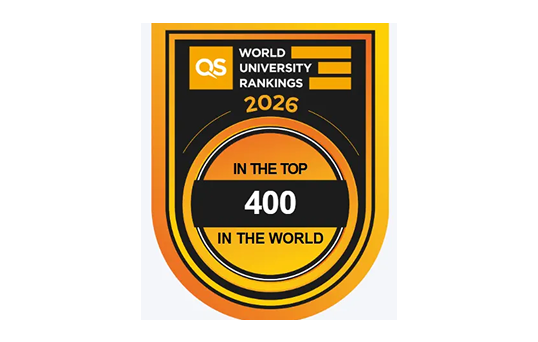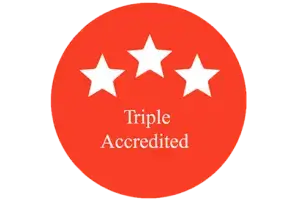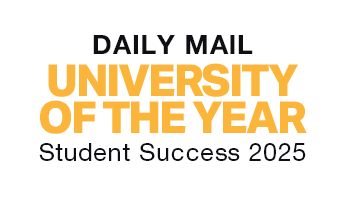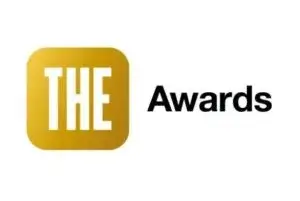

Master of Science in Business Analytics
MSc (Online)
Gain industry-recognised expertise in business analytics with accreditation from the Institute of Analytics (IoA), unlocking professional opportunities and exclusive membership benefits. Apply your skills to real-world business challenges set by industry leaders, using analytics in consultancy projects to enhance problem-solving and decision-making abilities.

January, May, September
Apply now for any date

Funding options include UK government loans for eligible students, scholarships, and flexible payment plans. A deposit is required to secure your place

Two years (part-time)
Flexible distance learning

Total tuition: £12,500 - no hidden costs
Why choose this programme
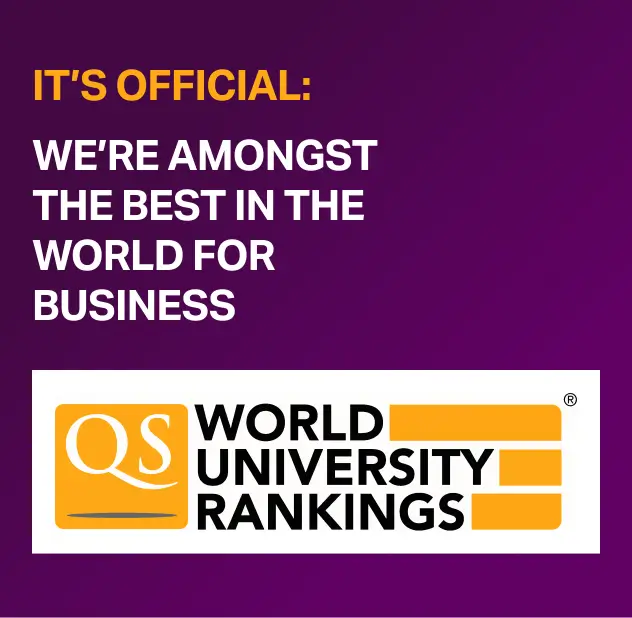
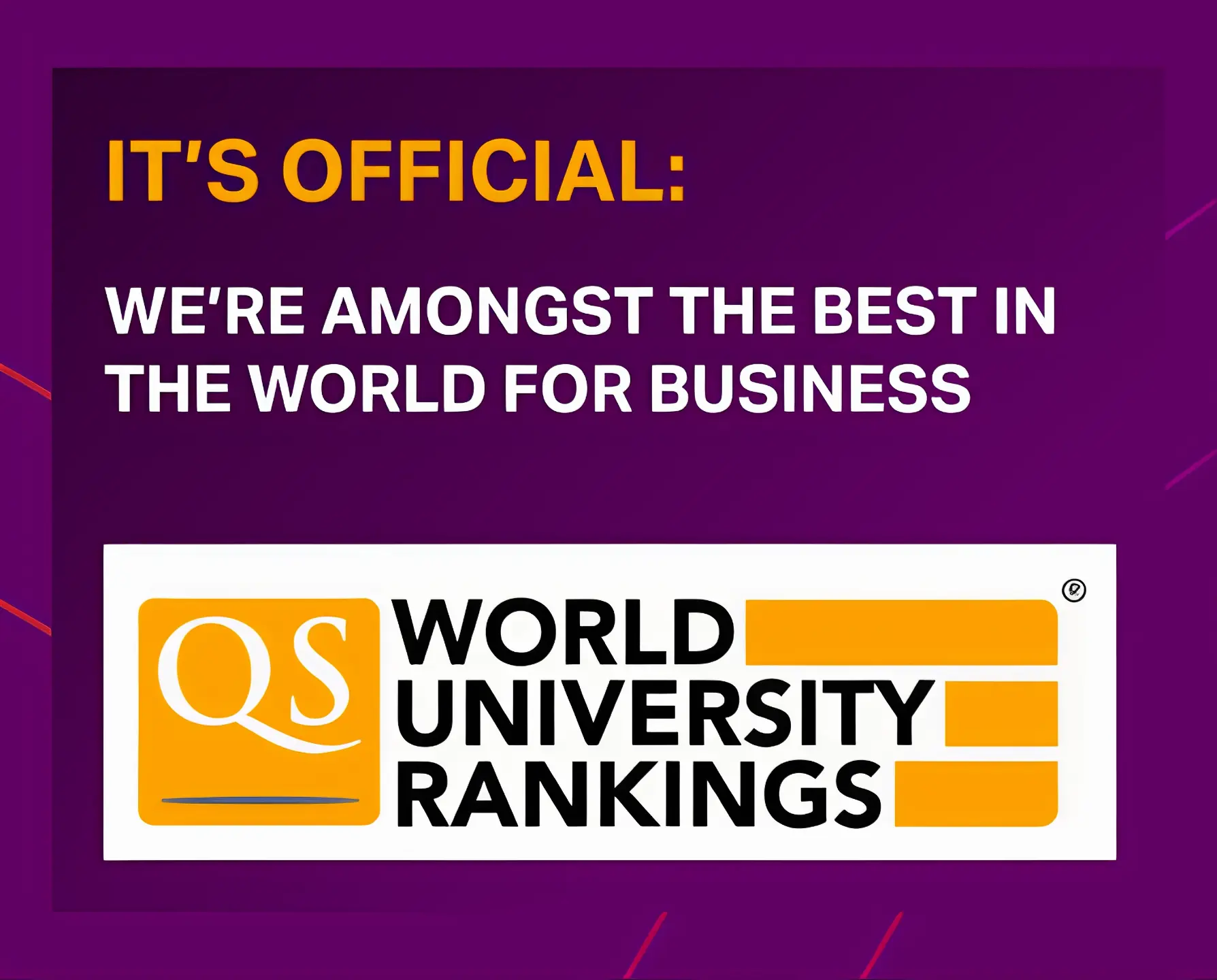
Recognised: Stand out in the job market with accreditation from the Institute of Analytics (IoA). Unlock exclusive membership benefits and career advancement opportunities.
Develop real-world consultancy skills: Solve practical business challenges using analytics while building consultancy and project management experience highly valued by employers.
Employability: Join graduates who have secured roles at Deloitte, NHS, HSBC, Jaguar Land Rover and Essence Global, demonstrating the programme’s strong industry relevance.
Industry-relevant curriculum: Work on real-world, ESG-focused challenges set by industry leaders, enhancing your problem-solving and decision-making skills.
Plan your future with expert guidance: The Aston Global Advantage module helps you craft a personalised career plan, refine your job search strategy, and perfect your interview techniques.
Tailor your learning experience: Customise your studies with hands-on assignments and a personalised research project, ensuring your learning aligns with your career goals.
Top-ranked institution: Gain global recognition with a programme ranked 2nd in the UK and Top 10 in Europe for Business Analytics (Eduniversal, 2025), boosting your career prospects.
Globally accessible with flexible admissions: Wherever you are in the world, Aston University Online makes higher education within reach, with flexible study, monthly payment options, and non-standard entry routes that recognise the value of varied professional and educational experiences.
Flexibility: Study anytime, anywhere. Focus on one module and one assessment at a time, allowing for deep learning while balancing work and personal commitments.
Supportive community: Learn within a small cohort and receive personalised support at every stage of your journey. With a globally inclusive learning environment, you’ll never feel like you're studying alone.
Programme overview
Study a flexible, affordable postgraduate business analytics degree with a globally ranked university and experts in online learning.
Delivered by the triple-accredited Aston Business School, our Business Analytics (MSc) programme will equip you with a broad range of analytical skills, from data visualisation to predictive modelling, ensuring you're prepared for the complexities of modern business challenges.
This programme is tailored for those eager to master the art of interpreting and leveraging large datasets to improve business performance across any sector.
To further enhance your understanding of the business world, you will also gain access to subscriptions for The Financial Times, The Economist, and Harvard Business Review. These leading publications will provide you with in-depth knowledge of business and current economic affairs.
As an Aston Online student, you’ll enjoy free access to a vast range of journals, articles, and reports through Aston’s e-library.
What you will learn
- Analytical tools proficiency: Become an expert in programming languages (Python, R, SQL) and spreadsheet applications (Excel, SPSS). These skills are crucial for advanced data analysis on large datasets in contemporary business analytics applications.
- Data visualisation and descriptive statistics: Learn data visualisation techniques and apply descriptive statistics to gain meaningful insights for the effective communication of data analysis to management teams.
- Predictive analytics: Develop and apply statistical and machine learning models to address real-world business problems. You will be able to showcase your skills in data manipulation and exploratory data analysis, and apply statistical methods to data.
- Prescriptive analytics and modelling: Convert real-world problems into mathematical and spreadsheet models, utilising them for rational decision-making in businesses. Develop a deep understanding of modelling concepts and gain hands-on experience in efficiency and productivity assessment.
- Project management: Develop project management skills to support business growth and development in an international context. You will gain exposure to theoretical and practical tools, providing the capability to apply them in work-based situations.
Flexible payment plans and funding options

We are ranked in the top 5% of evaluated institutions
QS World University Rankings 2026
It’s been an exciting time at Aston University, with amazing new achievements that highlight our teaching excellence, outstanding student outcomes, and strong performance in global and UK rankings. Here are just a few highlights:
- Aston University is now ranked in the top 5% of global universities (top 5% evaluated institutions, QS World University Rankings).
- Aston University has been named the University of the Year for Student Success 2025 in the new Daily Mail University Guide.
- Aston University is 2nd in the country for Social Mobility (Higher Education Policy Institute).
And that’s just the beginning. Watch our video to discover more.
The programme materials (audio and video) presented on Blackboard proved to be an invaluable repository of knowledge, contributing significantly to the depth of our understanding.


Career prospects
In today’s data-driven world, expertise in business analytics is the keystone of industry leadership and innovation. Our Business Analytics (MSc) programme prepares you for a thriving career by providing in-demand skills that are the backbone of strategic decision-making.
With insights from data often providing the basis for competitive advantage in the marketplace, it’s not surprising that business analytics graduates are increasingly in demand. These transferable skills make Aston graduates highly sought-after by employers, opening doors to exciting careers.
Career prospects you can look forward to:
Business analyst: Identify opportunities and drive business transformation.
Data analyst: Transform raw data into strategic insights, guiding decisions that shape the future of business.
Business intelligence analyst: Leverage data to mitigate risk and enhance security.
Performance analyst: Dissect performance metrics to drive excellence and propel organisational achievements.
Operations analyst: Refine business operations, ensuring peak performance and seamless process flows.
Credit risk analyst: Assess and mitigate financial risks, safeguarding the fiscal integrity of business in a fluctuating economy.
Analytics executive: Lead in data-driven decision-making, crafting analytics initiatives that set industry standards.
Chief technology officer: Lead technology strategy and innovation to enhance business performance, improve user experience, and maintain a competitive edge.


Programme structure
Embark on a transformative journey with our Business Analytics (MSc) programme. Dive deep into the core functions and innovative strategies that will equip you to lead and succeed in any business environment. Each credit of study is equivalent to 10 learning hours. For example, 30 credits reflect 300 hours of learning.
Modules
Analytical tools and technologies '%3e%3cpath%20d='M11%2013H5V11H11V5H13V11H19V13H13V19H11V13Z'%20fill='%231C1B1F'/%3e%3c/g%3e%3c/svg%3e)
30 credits
This module will teach you the tools and technologies required to carry out advanced data analysis on large datasets, such as those found in many contemporary applications of business analytics. These include programming languages, such as Python, R, and SQL, as well as spreadsheet applications, such as Excel and SPSS, that are now commonly expected by organisations employing data analysts.
Descriptive analytics and data visualisation'%3e%3cpath%20d='M11%2013H5V11H11V5H13V11H19V13H13V19H11V13Z'%20fill='%231C1B1F'/%3e%3c/g%3e%3c/svg%3e)
30 credits
The module will introduce you to data visualisation techniques used to display and summarise information. You will look at descriptive statistics that can be used to extract meaningful information from data. This module will give you the skills and practice in using appropriate statistical techniques when completing business reports and communicating data analysis to the organisation management team.
Predictive analytics'%3e%3cpath%20d='M11%2013H5V11H11V5H13V11H19V13H13V19H11V13Z'%20fill='%231C1B1F'/%3e%3c/g%3e%3c/svg%3e)
30 credits
The module will teach you to develop and apply statistical and machine learning models to address real-world business problems, such as demand forecasting, dynamic pricing, and customer churn prediction. You will learn to use a broad variety of data manipulation techniques, including dataset merging, summarisation, data cleaning and transformation, perform exploratory data analysis, and apply statistical and machine learning methods to cross-sectional and time series data.
Prescriptive analytics '%3e%3cpath%20d='M11%2013H5V11H11V5H13V11H19V13H13V19H11V13Z'%20fill='%231C1B1F'/%3e%3c/g%3e%3c/svg%3e)
30 credits
This module will focus on turning real-world problems into mathematical and spreadsheet models and examine how you can use models to help rational decision-making in organisations. You will develop a deep knowledge and understanding of the main modelling concepts and you will be able to quickly identify problems and situations in business where the use of those models can be beneficial. The module also aims to provide you with hands-on experience on implementing an efficiency and productivity assessment using methods such as Data Envelopment Analysis or Stochastic Frontier Analysis.
Modules
Aston global advantage'%3e%3cpath%20d='M11%2013H5V11H11V5H13V11H19V13H13V19H11V13Z'%20fill='%231C1B1F'/%3e%3c/g%3e%3c/svg%3e)
30 credits
The Aston Global Advantage module enables you to assess their personal development during the programme, consolidate your learning, and plan how to improve further. Valuable personal development includes the ability to research, synthesise, and evaluate varied sources, and understand and design a research project. These skills equip you well for critical thinking and lifelong learning after your degree.
Research project'%3e%3cpath%20d='M11%2013H5V11H11V5H13V11H19V13H13V19H11V13Z'%20fill='%231C1B1F'/%3e%3c/g%3e%3c/svg%3e)
30 credits
The programme ends with a research project where you will get the opportunity to design your own learning experience which applies to your specific area of interest. The purpose of this project is to act as a springboard for your future career. There are several ways to complete this project, including the following:
· A consultancy project on behalf of a client or organisation
· A business plan for your own business
· An industry/themed research project
Programme learning outcomes
On successful completion of this programme, you will be able to:
- Design, develop, and evaluate projects that involve advanced forms of data manipulation (data access, integration, aggregation, and filtering).
- Assemble descriptive statistics methods to support the management of an organisation in various decision-making contexts.
- Formulate presentations of business information via data visualisation following relevant principles and guidelines.
- Design, develop, and evaluate predictive modelling solutions to practical business problems.
- Construct quantitative models for decision-making.
- Design analysis of the performance of units within organisations or organisations within an industry sector to provide insights on their relative performance.
- Design and develop independent research, including planning a research project, defining its aims and objectives, conducting a literature review, selecting appropriate methods, conducting empirical analysis of relevant data and presenting a well structured, lucid report with appropriate conclusions.
- Acquire transferrable professional skills such as project management, team work, and leadership.
The programme aims to:
- Provide you with practical skills using modern tools and technologies for large-scale data analysis.
- Introduce you to data exploration and data visualisation techniques used to display and summarise information contained in large repositories of historical data.
- Teach you predictive analytics methods that enable organisations to construct forecasts of various economic variables and analyse factors affecting them.
- Introduce you to mathematical and econometric modelling techniques to support the decision-making process and to measure efficiency in different business contexts.
- Provide you with the skills to design and implement independent research projects.
- Provide you with transferrable professional skills such as project management, teamwork, and leadership skills, and prepare you for employment in an increasingly global operating environment.
*We may update our programmes to reflect best practices and academic developments. If we do, we’ll let you know of any changes at the earliest opportunity by updating our programme webpages. If you have already received an offer, we’ll write to you directly to let you know of the changes.
Unsure if you qualify?
Check your eligibility now or speak with our admissions team about alternative entry routes.
Is this programme right for you?
- You have a strong quantitative background, with a bachelor's degree in mathematics, statistics, computer science, or engineering.
- You want to develop expertise in applying analytical techniques to solve business problems.
- You are a working professional with experience in data analysis. Still, you want to gain a deeper understanding of business fundamentals and advanced analytical techniques to progress to senior data analyst or business analyst roles.
- You are passionate about using data to drive business decisions and are eager to develop your skills in data visualisation, machine learning, and business intelligence.
- You are looking for a programme that combines a strong theoretical foundation with practical applications and provides opportunities to work on real-world business problems.
- You are a self-motivated learner who is comfortable working with complex datasets and statistical methods.
- You are looking for a flexible online programme that can fit around your work and personal commitments.
After my review of several ranking sites and with the accreditations of AACSB, EQUIS and AMBA, Aston Business School was my obvious choice. Reflecting on my time as a student at Aston University, I would say it was a truly worthwhile experience, surpassing my expectations not only in the quality of teaching materials and the usability of the learning environment but mainly in the programme deliverables by Aston’s seasoned tutors.


Entry requirements
We carefully design our entry criteria to ensure every student begins their academic journey with Aston Online equipped with the foundational knowledge, potential, and personal qualities needed to succeed in their chosen programme. Our standards are not merely a threshold for entry; they are set to support student success and uphold the quality of the learning experience. Each student joins an intellectually challenging, personally rewarding programme, aligned with employers' expectations and the global job market.
Standard entry requirements
You will need one of the following:
-
A UK 2:2 (lower second-class honours) degree in a quantitative, technical, or scientific programme, such as mathematics, computer science, engineering, economics, finance, or business and management. You will be given instruction and practice opportunities in coding and mathematical fundamentals. Prior experience in both is desirable, but not essential.
-
An equivalent international degree recognised by Aston University and proof of English language (if applicable).
You will need to provide:
-
A copy of your bachelor's degree and transcripts (translated to English if necessary)
-
Your curriculum vitae (CV)
-
A professional reference
-
Your ID
-
Proof of English language (if applicable)
*Click here for more information or contact our Admissions Team to check your eligibility: enquiries@astononline.ac.uk.
Non-standard entry routes
We take a holistic approach to evaluating applications, considering both your academic background and professional experience. If you don't meet the standard entry requirements, you may still be considered if you can demonstrate strong professional achievements or relevant qualifications.
Requirements for applicants applying with work experience only:
-
At least three years of relevant post-graduation work experience or three years of relevant work experience
-
An academic reference
-
A personal statement detailing your motivations for undertaking this programme and how your background, qualifications, and experiences will help you meet its demands
-
A copy of your curriculum vitae (CV)
International students
Every year, students from over 120 countries choose Aston, bringing with them a wide range of international degrees and qualifications. We recognise this diversity while maintaining rigorous academic standards, reflecting the global business landscape our graduates lead in.
A Student Recruitment Advisor can assess your degree equivalency on your behalf as part of the application process. You can also explore recognised qualifications by region, including Africa, the Americas, Asia, Europe, and the Middle East, here. For personalised advice before applying, contact our Admissions Team at enquiries@astononline.ac.uk.
English language requirements
Applicants whose first language is not English must provide evidence of a recognised English language qualification, taken within the last two years and accepted by Aston University. If needed, we can provide an internationally accredited online English Language Assessment, which you can discuss with your Student Recruitment Advisor during the application process.
We accept a wide range of English language qualifications, including:
-
IELTS Academic and IELTS Academic Online
-
IELTS One Skill Retake
-
TOEFL and TOEFL iBT
-
Oxford ELLT (Global and Digital)
-
Pearson Academic (PTE)
-
Password Test
-
Language Cert International ESOL SELT
-
Kaplan Test of English (KTE)
-
Cambridge Advanced Test (CAE)
-
Cambridge Proficiency Test (CPE)
Find out if you qualify
If you have any questions about your eligibility or the application process, please get in touch with the Aston Online Admissions Team:
Email: enquiries@astononline.ac.uk
Call: +44 (0) 121 824 6374
Our office is open Monday to Friday, 09:00 - 17:00 GMT
FAQs
What are the benefits of studying Business Analytics (MSc) Online?
Our Business Analytics (MSc) Online programme has been carefully designed to train world-class business analytics professionals for different industry sectors. You will be equipped to unlock the transformative potential of data analytics insights and propel your organisation towards innovation and strategic leadership.
Balancing academic excellence and industry relevance, the programme offers a holistic curriculum that seamlessly integrates the theoretical rigour of data analysis with practical applications, ensuring you graduate with the ability to translate insights into actionable strategies.
How relevant will my degree be?
Your Business Analytics (MSc) Online degree will be highly relevant, equipping you with advanced analytical skills and practical experience. The curriculum aligns with industry needs, preparing you for a successful career in business analytics.
How can I personalise my learning journey to fit my career goals?
The Aston Global Advantage module helps you craft a personalised career plan, refine your job search strategy, and perfect your interview techniques.
What specific software and tools will I use throughout the Business Analytics (MSc) Online programme?
You'll use tools like Python, R, SQL, Excel, and SPSS for data analysis and visualisation. These are essential for mastering predictive analytics, modeling, and project management to solve real-world business challenges.
What happens if I decide to withdraw?
If you withdraw from your studies, you may still have fees to pay. Please check the fee liability in section 4.7 of the Tuition Fee Charging Policy here.
How will I be assessed?
You will engage in a variety of regular formative and timetabled summative assessment activities, where assessment modes and formats closely mirror relevant professional and industry contexts.
- Formative assessment set by the module content will include short tasks, knowledge tests, and production of outcomes to check knowledge and competence.
- A combination of tutor-graded practical coursework assignments and projects will be used to provide a structured summative assessment for each module.
- In all assessments, you will benefit from detailed assessment rubrics provided from the beginning of the module to guide your effort and achievement.

Download brochure
Don’t hesitate to reach out! Our friendly admissions team is ready to answer your questions and offer personalised guidance on eligibility and funding options.


